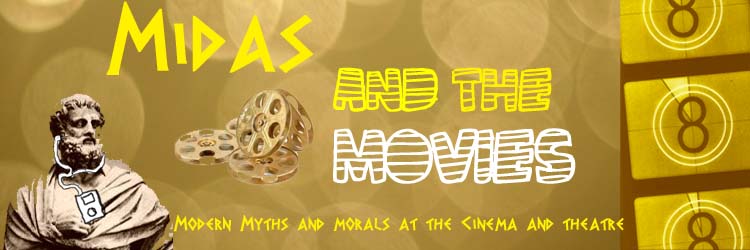Dir. John Lee Hancock, 2009
Football. Fast food. Religion. Southern hospitality. Nuclear families. "The Blind Side" may be the most All-'Murrican film of the year. That doesn't mean it doesn't accomplish what it sets out to accomplish. It's sweet, well-crafted, and strikes few false notes. But its unchallenging story leaves its viewers with nothing but the fuzzy affirmation of the American dream.
"The Blind Side" is tells the true story of Michael "Big Mike" Oher, an undereducated, inner city black kid given a second chance by the upper class Touhy family. I say the story of Michael, but the film tells us a lot more about Leigh Anne Touhy, Sandra Bullock's plucky savior character. The film is hers from the beginning, and Bullock rises to the challenge, admirably filling out her manicured character with a believable soul. Leigh Anne, in a burst of determined altruism, decides to take homeless Michael back to her family's Tennessee mansion. From there, it is assumed, the family embarks on a journey of understanding and sparks a warm relationship with this underprivileged young man.
But we actually see very little relationship grow between Michael and his adoptive family. Much more screen time is devoted to the Touhys: attractive teen daughter, wisecracking kid brother, Leigh Anne's various crusades on Michael's behalf, Tim McGraw's quiet, benevolent presence as husband Sean. Perhaps The Blind Side thinks it is the story of Micheal Oher's salvation, but its focus is on the saviors. "Is this some kind of white guilt thing?" a character asks Leigh Anne about halfway through the film. The question is met only with shocked reproof-- but we could have done with an answer. What does it mean for a family that owns 85 Taco Bells to show mercy to this young man? Is it merely "what Christians do"?
The question is a relevant one for a few reasons. For one, the film spends a great amount of its running time depicting a family in the act of altruism. Not only that-- it is altruism in the face of adversity. Throughout the film runs the odd yet familiar trope of good white/bad white. The school board refuses to give Michael a chance until one good man speaks in his defense. Nobody will believe in Michael's football talent until Leigh Anne speaks up for and inspires him. Michael's football opponent pitches racist taunts at him, while his coach and family encourage him. It appears as if Michael would flounder were it not for the kindness of a very special few. So where does that kindness come from? What makes Leigh Anne Touhy any different from her rich, prejudiced girlfriends at the lunch table? What drives the "good" and "bad" people in the story-- what's at stake, morally? As in Christ's parables, there are clear-cut "wise" and "foolish" archetypes at work here. But those parables are meant to make the listeners see the fools in themselves and hope to one day become the wise. The Blind Side aspires to no such subtlety; there are merely good whites, doing what any decent American would, and obviously prejudiced bad whites. "Am I a good person?" Leigh Anne asks, in a rare pensive moment. Her loyal husband replies, "You're a great person." And that is that. The question of the nature of a good deed is invoked, but never fully addressed.
About half way through the film, I was wondering if any stakes were going to show up. It seemed as if the story was completely about the Touhys gaining a sense of personal fulfillment. "You seem happy," Sean tells Leigh Anne as she falls asleep with a smile. "It has everything to do with Michael," she replies. Thankfully, The Blind Side finally decides to explore the Touhy's motives in the final quarter of the film. Leigh Anne says to Michael, "You know, we don't know too much about you." No kidding. The conflict at the climax of the film addresses this central problem with the film up to that point: have the Touhys missed caring for Michael, the person, in the midst of caring for Michael, the football player/vessel for generosity? The heart of the problem is expressed in one of the film’s final scenes. In the scene, Michael essentially says that everyone has only asked about him in relation to the Touhys, without asking him what he really thinks and feels. It is noble that the film finally lets him speak for himself, but it probably should have happened more than five minutes before the ending.
As a vehicle for Sandra Bullock’s talent, The Blind Side works. Her heroine sashays delightfully into situations and gits-er-done like an upper-class Erin Brockovich. The kid is adorable, the message is valuable, the ending satisfactorily redemptive (and true). There is a great movie inside The Blind Side, one that explored deeper character connections, more complex moral dilemmas, and higher stakes (for examples of these goals accomplished, look to films like Freedom Writers or Finding Forrester). As it is, the film is merely a pleasant entry into the inspirational genre, a Thanksgiving film that leaves audiences full, happy, and ready for that long, forgetful nap.

No comments:
Post a Comment